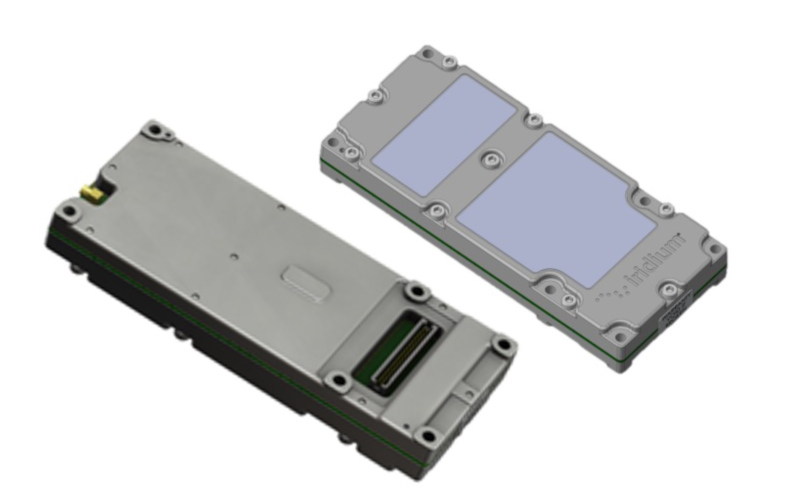
News
Products
Regulations
SKYTRAC beta partner for new Iridium transceiver
August 26, 2019 By Wings Staff
 The Iridium Certus 9770 transceiver is designed for speeds ranging from 22 Kbps to 88 Kbps. (Photo: Irridium)
The Iridium Certus 9770 transceiver is designed for speeds ranging from 22 Kbps to 88 Kbps. (Photo: Irridium) SKYTRAC Systems Ltd. of Kelowna, BC, is one of 10 beta partners introduced by Iridium Communications Inc. for the development of new products based on the new Iridium Certus 9770 transceiver.
Each beta partner has received operational beta units, which have been undergoing testing designed to fine-tune both the new transceiver and the first new solutions they will enable in preparation for service activation. Small and highly mobile, Iridium states the Certus 9770 transfers IP data over 35 times faster than its predecessors while also supporting high quality voice connections.
Iridium continues to explains this new midband device, with L-band speeds ranging from 22 Kbps to 88 Kbps, will expand the reach of satellite services to new markets, ranging from unmanned and autonomous drones to new personal communicators and remotely deployed IoT devices, all connected through Iridium’s unique L-band network.
The 10 companies currently testing the devices for maritime, aviation, land-mobile, Internet of Things (IoT) and government applications include: Beam Communications Pty., Blue Sky Network, Cobham, Lars Thrane, Marine Instruments S.A., McQ Inc., NAL Research Corporation, SkyTrac Systems Ltd., Telespazio and Wireless Innovation. Upon completion of testing, the Iridium Certus 9770 transceiver will be made available to additional Iridium licensed technology and distribution partners, expected in the first quarter of 2020.
SKYTRAC states its current narrowband solutions and products can already produce effective and data-conscious connectivity. With a 35 times multiplier via the new midband service offerings, SKYTRAC explains users can benefit from richer data transfer speeds to align with increased demand due to advanced streaming and telemetry services.
The Iridium Certus technology platform, launched in January 2019, offers the flexibility to scale device speeds, sizes, and power requirements bidirectionally based on the needs of the end-user. SKYTRAC explains IoT and small-form-factor transceiver data transfer rates were limited to 2.4 Kbps before the launch of the new transceiver.
Iridium defines “midband” as speeds ranging between 22 Kbps and 176 Kbps, to differentiate this unique speed range from its traditional 2.4 Kbps “narrowband” speed and Iridium Certus specialty broadband at 176 Kbps and higher. The Iridium Certus 9770 transceiver is designed for speeds ranging from 22 Kbps to 88 Kbps.
The launch of the Iridium Certus platform and new transceivers allows providers to leverage both narrowband, midband, and broadband speeds to align with operator and end-user requirements. Iridium is a mobile voice and data satellite communications network that spans the entire globe.
“This new breed of device is the start of a shift in what defines small-form-factor satellite communications technology,” said Matt Desch, CEO of Iridium. “These are highly mobile, lower-cost solutions that feature native IP technology at speeds capable of delivering a true internet, email, high-quality voice, photo and even some video capabilities. When you combine that with our truly global coverage, we’re creating a cost-effective and reliable ecosystem of new products in a new L-band speed class, midband, that is unlike anything that exists from the satellite community today.”
Iridium explains UAVs and satellite IoT are two market examples that are expected to see significant growth over the next few years, further emphasizing the need for the remote capabilities these devices will enable. According to MarketsandMarkets, the UAV market is expected to reach US$52 billion in value by 2025 from US$17 billion in 2017, while Northern Sky Research reports satellite-enabled IoT solutions total industry revenues are expected to grow to US$2.5 billion by 2027, from approximately US$1 billion in 2019.